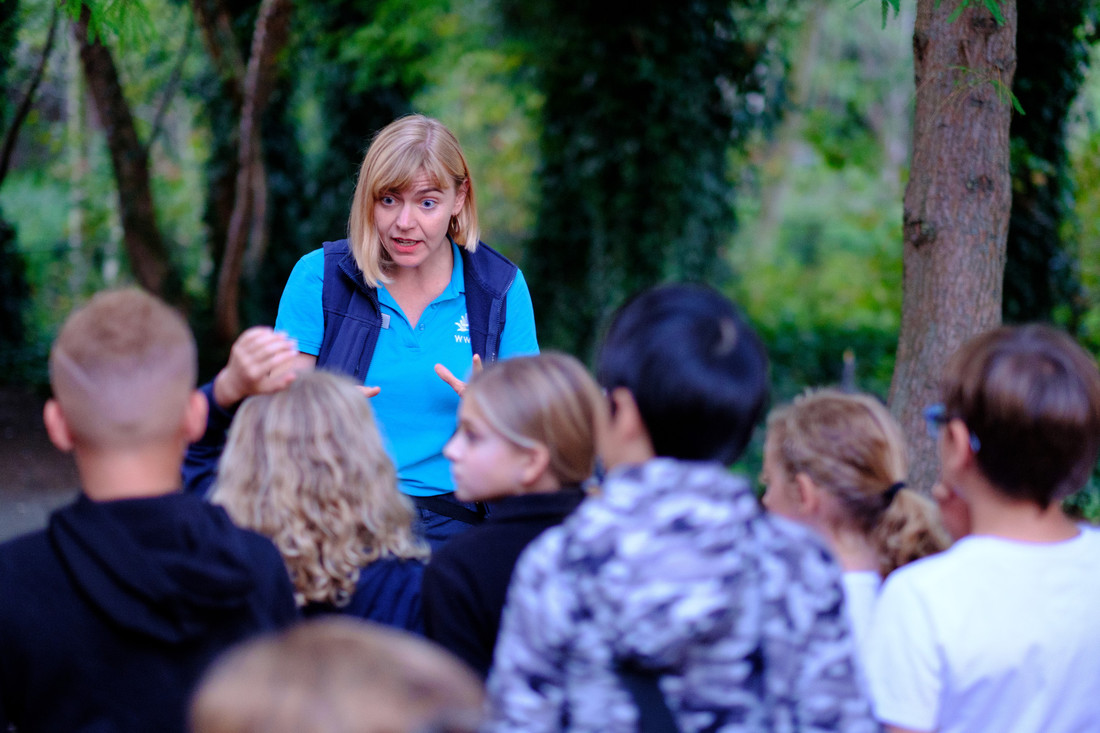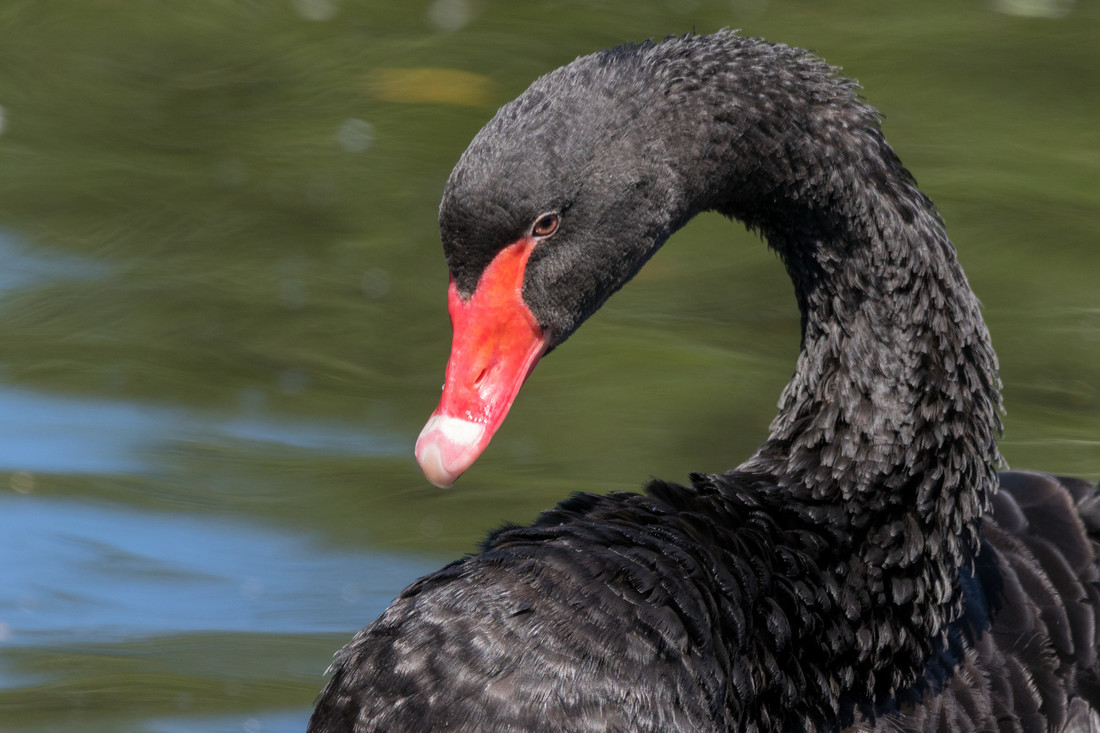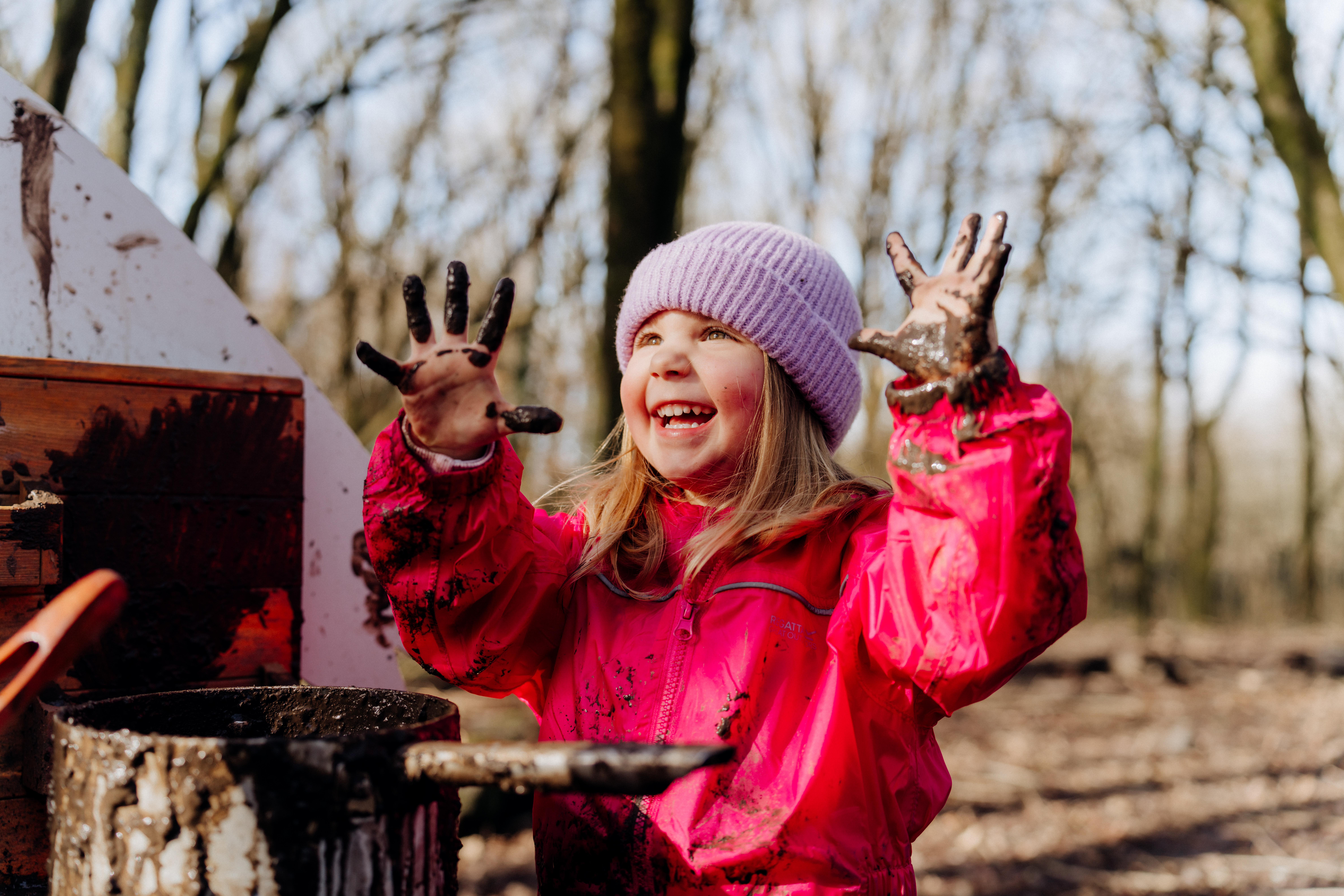Coscoroba cygnets hatch at WWT Martin Mere
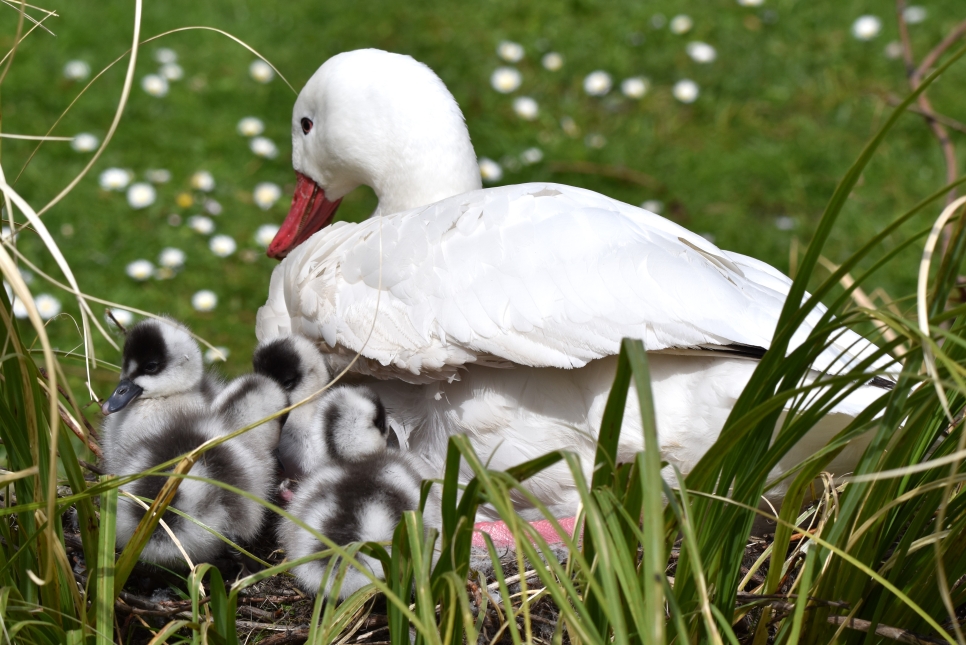
Four adorable coscoroba cygnets are stealing visitors’ hearts at WWT Martin Mere Wetland Centre, Lancashire.
The one-month-old cygnets hatched near the beginning of April, and the Living Collection team says parents are “doing a great job”.
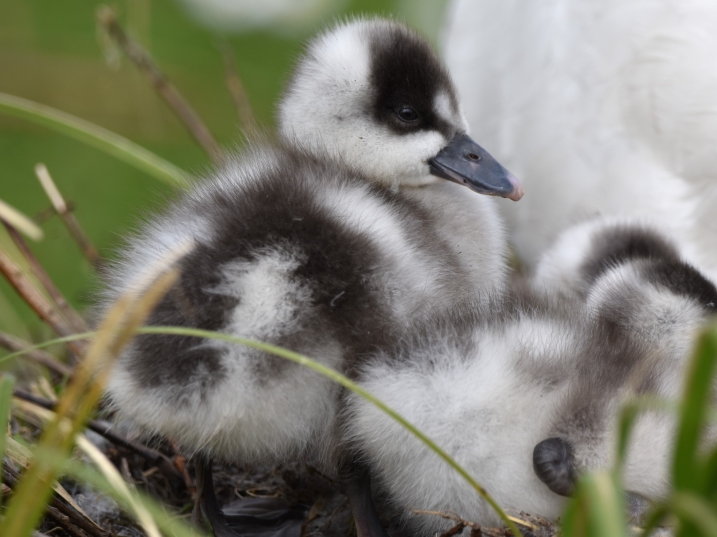
Picture shows one of the coscoroba cygnets, with two sat beside.
The coscoroba is a particularly interesting species, as even though we call it a swan, it isn’t technically a ‘true swan’. In fact, a 2014 genetic study revealed that it is closely related to the Cape Barren Goose.
Breeding behaviour
In the UK, the coscoroba will usually lay 4-7 eggs. They build large nests out of vegetation over islets, in reedbeds or at the edge of the water. The male is very territorial and will defend the nest.
Incubation takes around 35 days, with laying happening between April and May. Both parents take part in rearing the young. When cygnets hatch, they will have greyish-white downy-fluff with black stripes down their backs, and black covering the top half of their face. These markings help them better camouflage against potential predators.
Nick Brooks, Centre Manager at WWT Martin Mere, said: “We’re so pleased to welcome our second set of youngsters this year, after recently welcoming our trio of cape barren goslings.
“Many visitors will have noticed how well the male is defending his young, patrolling the fences and even warning off any passerby. The female is also keeping a close eye on them, so we haven’t had to do any intervention.
“We recommend coming to get a closer look at the four cygnets, as they truly are an adorable bunch. They can be found within our living collection if you turn right just after our Chilean flamingo flock.”
WWT Martin Mere is open every day from 9:30am until 6pm. To book tickets, visit the website (WWT members enter for free).
Photo credit: Lisa Wilkinson-Gamble

